AUSTRALIAN PAIN SOCIETY NEWSLETTER



Co-editor Lincoln Tracy has been a powerhouse in the interview department. His third interview from the recent APS conference is with Professor Nanna Finnerup from Aarhus University in Denmark. I am always intrigued by how health care professionals end up working in the field of pain management. The routes are often circuitous and never dull.
We also congratulate Dr Nick Christelis on his recent appointment as the new Neuromodulation Society of Australia and New Zealand (NSANZ) President and the organisation’s award of charity status.
Inside this edition researchers from the University of Sydney are looking to interview both health care professionals and patients taking opioids, in a research project on how to manage these medications and more particularly how and when to stop taking these analgesics. Please consider contacting them via email phone or Skype and encourage some of your patients to participate
A new government and perhaps new opportunities in the field of pain management. There seems to be some movement in the Australian pain space with the Commonwealth Health Department announcing last month its priorities in the management of the health of the nation. Pain, or more particularly, arthritis and musculoskeletal health conditions, has been recognised as a national health priority, one of the eight priorities in health, which is welcome news. Painaustralia’s June launch of the new National Strategic Action Plan for Pain Management provides us with the opportunity to lead the world with the
implementation of the first, fully funded government response to comprehensively addressing the burden of pain.

The ongoing review of the Medical Benefits Schedule is looking at two sets of item numbers which are important in pain management. Procedural item numbers, which are not majorly important to the majority of APS members and specific item numbers that are targeting General Practice and care in the community. There seems to be a feeling that the multidisciplinary management of pain and the biopsychosocial approach has finally impinged upon the consciousness of the government. It is hoped that General Practitioners will be able to co-ordinate plans specifically for pain and the provision of these plans that will at least partially subsidise an increased number of visits to allied health, Physiotherapy, Occupational Therapy, Exercise Physiology and perhaps most importantly Clinical Psychology, which, in my opinion, has been the least supported of the effective allied health options.
It is early days yet, so watch this space.
Nicholas Cooke Guest EditorNannaFinnerup,MD,DrMedSc,isaProfessorinpainresearchat theDanishPainResearchCenter,DepartmentofClinicalMedicine, AarhusUniversity,DenmarkandChairoftheNeuropathicPain SpecialInterestGroupfortheInternationalAssociationforthe StudyofPain(NeuPSIG).Herresearchprimarilyfocusesonthe pathophysiologyandtherapyofneuropathicpain.Finnerupsat downwithLincolnTracy,aresearchfellowfromMonashUniversity, Australia,atthe2019AustralianPainSocietyAnnualScientific Meeting,whichtookplaceApril7-10,2019,ontheGoldCoast, Australia.Finnerupdiscussedhowshegothookedonresearch,her currentresearchinterests,andherloveofTVcrimedramas.Below isaneditedtranscriptoftheirconversation.

What was your path to pain research?
It was by chance, honestly. I was in Copenhagen doing my training in neurology but wanted to move back to Aarhus. I was considering doing a PhD and heard that Professor Troels Staehelin Jensen, was looking for a PhD student to study spinal cord injury pain. I interviewed for the position and started shortly after that. I was originally planning on doing the PhD and then go back to finish my neurology training. I found research to be so interesting, and eventually I realised that I wasn’t going to go back to working clinically. That was 1998, and I’ve been in research ever since.
What are you currently focusing on in your research?
One research area I’m currently involved in relates to stratification and personalised treatment. We want to try and identify patients with a specific sensory profile and see if they respond better to certain drugs. We are currently trying to repeat a previous randomised trial of ours where we looked at this and if we could get better outcomes for patients.
Another area of work we’re just starting is looking at identifying potential different
biomarkers in assessing peripheral pain mechanisms like nerve excitability testing. Some of the researchers are looking into spinal reflex mechanisms, whereas others are using evoked potentials and fMRI to look at underlying brain mechanisms to investigate how different drugs affect different targets and areas in the brain. The main goal of this avenue of research, which is a European Union collaboration, is to look back to the preclinical studies and see if we can improve drug development.
What are some of the big challenges in pain research at the moment?
I think that while we know a lot about different types of pain—acute and chronic pain, for example—we still lack good and safe tools for efficient treatment. For some people it isn’t possible to treat the cause of the pain, but what we can do is learn how to minimise the impacts and the influence of pain. Having listened to many people who are in pain, and what they do about their pain, has made me realise how important pain self-management is. Getting to work their way through learning what is good for them—and what’s not good for them—is very important. I think that it’s also good for them to talk about their pain with other people—it’s incredibly helpful for them to know that they aren’t the only
one who feels like this. There are some things that we know anecdotally are helpful for pain, but we don’t have the evidence to back it up. It makes it difficult to say, “you should do this, because it works”, but it means that we can say “you should try this because other people do this and have found it effective.”
Is there anything about pain that you have changed your mind on since you started your PhD?
That’s a good question, because I don’t really remember how I thought about things back then [laughs]. I’m not sure if my thoughts are really that different. But one thing I feel I have changed my mind about is how important it is that we are self-critical of our own research. I think as a community we really need to reduce what’s been called “waste” in research and really ask ourselves, “is this study going to make a difference, or is it just going to be one out of a hundred that examine the same thing?” How we spend the money we get for research is something that has received increasing amounts of focus over the past few years.
We really need to think about what has already been looked at and ask if our studies are powered enough to actually make a change. At times it’s important to go back to the literature, because many studies have asked questions we haven’t thought of or forgotten about. This is something that I really try and teach the students that I work with—to really highlight the importance of doing a systematic search before diving into a trial or study. This is sometimes difficult because of the rules or expectations placed on PhD students. In an ideal world all of your studies would have thousands of patients, right? That means that multicentre studies are those with the greatest impact—but these are the most difficult to do as part of a PhD. Sometimes
you have to compromise, but I think it’s important to consider that we use our resources carefully.
What would you like pain research to be doing differently in 5 or 10 years?
One crucial thing is the power of collaboration and doing multicentre trials. While these studies have a lot of benefits, they are becoming more and more difficult because of different data protection and privacy rules. I certainly think that it is important to have things like privacy regulations covered, we don’t want the ability to collaborate and do research to be impeded by these processes.
I also think we need to make sure we keep doing is to be very clear on what our hypotheses are and what our primary outcome measure is at the outset of a study. You can always find something interesting in exploratory analyses and that’s important—but we need to make sure that any results we find through these analyses are treated as such.
What do you do when you’re not doing research?
Well I have three daughters, which kept me busy for several years [laughs]. But now the kids are all grown up, which means I have to try and remember what I did for fun before they were born. In the winter I like to do puzzles. I’m a big fan of some of the crime dramas on TV—The Americans, Breaking Bad, and House of Cards. There’s also a great Danish show called The Killing, but I’m not sure if you have that in Australia
Lincoln Tracy is a postdoctoral research fellow in the School of Public Health and Preventive Medicine at Monash University and freelance writer from Melbourne, Australia. He is a member of the Australian Pain Society and enthusiastic conference attendee. You can follow him on Twitter (@ lincolntracy) or check out some of his other writing on his website
On behalf of the Scientific Program Committee and the Local Organising Committee, we are pleased to advise topical session submissions for APS 2020 are now open.
On behalf of the Scientific Program Committee and the Local Organising Committee, we are pleased to advise topical session submissions for APS 2020 are now open.

The deadline for Topical Session submissions is:
The deadline for Topical Session submissions is:
TUESDAY 1 OCTOBER 2019
TUESDAY 1 OCTOBER 2019
View the topical session submission guidelines.
Visit the online topical session submission portal.
View the topical session submission guidelines .
We look forward to receiving your submissions. Should you have any queries regarding your submission or the process, please contact the Conference Secretariat.
Visit the online topical session submission portal .
We look forward to receiving your submissions. Should you have any queries regarding your submission or the process, please contact the Conference Secretariat.
On behalf of the Scientific Program Committee and the Local Organising Committee, we are pleased to advise topical session submissions for APS 2020 are now open.

The deadline for Topical Session submissions is:
TUESDAY 1 OCTOBER 2019
View the topical session submission guidelines
Visit the online topical session submission portal .
We look forward to receiving your submissions. Should you have any queries regarding your submission or the process, please contact the Conference Secretariat
• be the major contributor and submitting author of the abstract,
• complete the PhD / Nurse / AHP Travel Grant section of the abstract submission process
• Complete and submit the travel grant application form
For further information, to ensure you meet the terms and conditions for travel grant applications and to complete the travel grant application form, please click here.
We look forward to receiving your submissions!
Submissions now open!
Submission Deadline: Thursday 31 October 2019
The Rising Star Award showcases rising star pain researchers in Australia, and may be awarded annually subject to the application of suitable candidates. The Rising Star Winner will receive a return airfare, accommodation, and complimentary registration to attend APS 2020, where they will present a plenary talk to showcase their work and ideas.
ants must be available to attend APS 2020, and to deliver the Rising Star ant must be a member of the APS
On behalf of the Scientific Program Committee and the Local Organising Committee, we are pleased to advise topical session submissions for APS 2020 are now open.

Australia, or have returned to continue
The deadline for Topical Session submissions is:
Applications are now open, for further information and to apply, please
TUESDAY 1 OCTOBER 2019
View the topical session submission guidelines
Eligibility criteria
Visit the online topical session submission portal .
We look forward to receiving your submissions. Should you have any queries regarding your submission or the process, please contact the Conference Secretariat
ation record (quality and impact of publications; e.g., H-index, standing
eligibility criteria are not met. Please include details in the nomination form such as:
- Time out for maternity/parental leave/carer’s leave/illness
- Significant breaks in research time (e.g., due to clinical work, reduced research-focussed post-doctoral employment)- Pro rata (so relative to opportunity for those working as clinicians or teaching/ research posts)
• Patents held
• Peer recognition: Awards or prizes, national profile, international profile
For further information and to apply please visit the conference website
We look forward to receiving your submission!
On behalf of the Scientific Program Committee and the Local Organising Committee, we are pleased to advise topical session submissions for APS 2020 are now open.

The deadline for Topical Session submissions is:
TUESDAY 1 OCTOBER 2019
View the topical session submission guidelines
Visit the online topical session submission portal
We look forward to receiving your submissions. Should you have any queries regarding your submission or the process, please contact the Conference Secretariat
Annual Scientific Meeting. Scholar must abide by SPC guidelines and attend >80% of SPC meetings.
• Review free paper and topical workshop abstracts under the mentorship of a full SPC committee member.
For further information and to apply please visit the conference website
We look forward to receiving your submissions!
Two years ago, the Faculty of Pain Medicine launched their Better Pain Management modules. These are 12 internet-based learning modules covering a broad range of topics in pain management. The modules cover broad areas such as a whole person approach to understanding and assessing pain and the impact of psychological factors on pain, and there are also modules on specific topic areas, such as opioid management, low back pain, neuropathic pain, and paediatric pain.
The modules are highly interactive, and require you to answer questions (written and multiple choice) during your learning. This certainly enhances the learning experience. Each module takes between 30 and 60 minutes to complete, which is just the right amount of time to learn new information from the topic area without being overwhelmed.
The modules are ideal for any professional working in the pain management field. Whilst some modules will be more relevant for certain professions than others, every module has something to offer in terms of increasing the knowledge base in pain management.
The APS has negotiated a special deal with the Faculty for a discount when purchasing individual modules. However, the cheapest rate is to pay for and complete all modules. The total cost of around $300 for all 12 modules is extremely good, considering the amount of work that has gone into generating the material. Many APS members have completed these modules, and the feedback has been very positive.
There is a link through the Members’ section of the APS website for the discount, or go directly to https://www. betterpainmanagement.com for the courses


ThankyoutoPainaustraliaandSimoneDe MorganforgrantingpermissionforAPSto reproducethisarticle.
Painaustralia[andtheAustralianPain Society]arepleasedtoparticipatein theSteeringGroupfortheAustralian PreventionPartnershipCentre’sprojectto improvetheresponsetopainmanagement byAustralia’sPrimaryHealthNetworks (PHNs).
Thecurrentmodelofcareforchronic painisunsustainableandPHNshave animportantroleinsupportinggreater involvementofprimarycare.
Aprojectcurrentlybeingconductedby TheAustralianPreventionPartnership Centre,ledbyProfessorFionaBlyth,aims toimprovetheawarenessofPHNsofthe numerousopportunitiestoimprovethe preventionandmanagementofchronic pain.
Theresearchteamrecentlyconsultedwith representativesfrom26PHNsandfound thatPHNshadpoorawarenessofchronic paininitiativesimplementedbyotherPHNs.
AresourceforPHNshasbeendeveloped bytheresearchteamandwaslaunched
at a recent workshop with PHNs. The resource, a map of chronic pain initiatives, aims to provide PHNs with an overview of the types of chronic pain initiatives PHNs are implementing as well as a description of each initiative to help PHNs in their planning.
This new mapping resource shows that chronic pain initiatives are implemented in all states and territories and in a range of metropolitan and regional PHNs. However, there is a need for more initiatives that focus on the prevention of chronic pain, technology-based initiatives to improve consumer access to multidisciplinary and multimodal care (such as telehealth and online consumer pain programs), and faceto-face community-based consumer pain programs. There is also a need for better monitoring and evaluation of initiatives with reports and evaluations made publicly available for PHNs to easily access.
The research team has also developed a comprehensive guide to all online and accessible chronic pain initiatives and resources currently available to primary care in Australia, in a bid to increase awareness and uptake of these initiatives by consumers, health care providers, and PHNs. Using this guide to select and implement initiatives that are suitable to their local context, PHNs may be able to improve the prevention and management of chronic pain without the need to develop new programs and resources.
The next phase of the project will focus on providing opportunities for PHNs to come together to discuss chronic pain initiatives and potential innovations and enable better implementation and evaluation of initiatives.
Funding for this research has been provided from the Australian Government’s Medical Research Future Fund (MRFF). For more information about the project and a link to the available resources, visit The Australian Prevention Partnership Centre’s website at: https://preventioncentre.org. au/our-work/research-projects/preventingthe-development-of-chronic-pain/
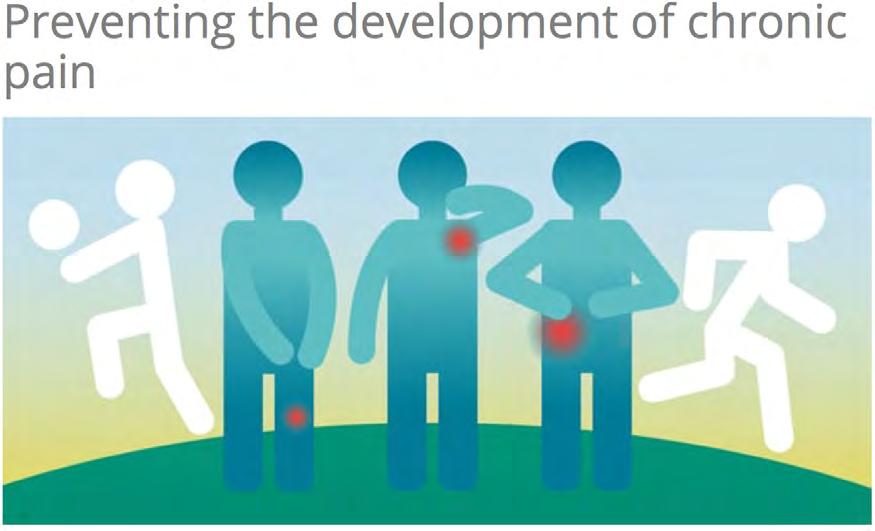
The Neuromodulation Society of Australia and New Zealand (NSANZ) has been granted charity status, recognising its invaluable role in striving to uphold the professional practice of neuromodulation and supporting the estimated one-in-five Australians living with chronic pain.
New NSANZ President, Melbournebased Pain Specialist and Anaesthetist, Dr Nick Christelis, said being awarded charity status will allow his organisation to perform 3 major functions:
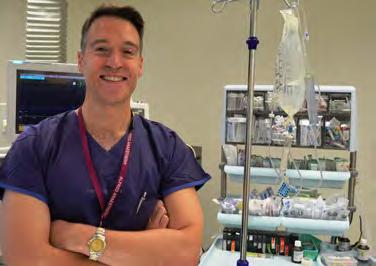
1. Fund and promote further research into neuromodulation;

2. Educate doctors training in this medical field; and
3. Establish a neuromodulation device registry.
“Chronic pain is a significant health challenge for Australia. As a not-forprofit, we will strive for continuing improvement to patient outcomes, and to ease the significant economic impact of pain,” said Dr Christelis.
• Around 3.24 million Australians are living with chronic pain, which is neither preventable, nor the consequence of poor health choices.
• Chronic pain affects the young and old, and can significantly compromise a person’s life.
• Neuromodulation, or Spinal Cord Stimulation (SCS), is a minimally invasive and reversible therapy that may prove an effective, additional or alternative option for those who have tried, and failed, conservative pain management treatments.
• SCS intercepts pain signals as they travel along nerve fibres through the spinal cord, before they reach the brain.
• Each year, an estimated 50,000 spinal cord stimulators are implanted worldwide, mostly for persistent or worsened pain following spinal surgery, and the severe nerve pain condition called complex regional pain syndrome (CPRS).
We want to understand your views on reducing or stopping your opioid medicines, in order to design interventions to help people come off their medicines.
Who are we looking for?
• Adults currently taking prescription opioid medicines for chronic noncancer pain
• Have not been on opioid rotation (switching from one opioid to another) or substitution therapy (e.g. methadone)
What will you need to do?
• We will call you for one telephone interview (20 min to 1 hour) at a time convenient to you
Contact us
• Phone: (02) 8627 6267
• Email: sph.opal@sydney.edu.au

• Fax: (02) 8624 4746
 This study has been approved by the University of Sydney Human Research Ethics Committee - (Protocol Number 2018/563).
This study has been approved by the University of Sydney Human Research Ethics Committee - (Protocol Number 2019/161).
This study has been approved by the University of Sydney Human Research Ethics Committee - (Protocol Number 2018/563).
This study has been approved by the University of Sydney Human Research Ethics Committee - (Protocol Number 2019/161).
Reminder that we are keen that members inform us when they have publications so that this can be shared with your APS colleagues.
Please send the newsletter editor (via the APS Secretariat, aps@apsoc.org.au) the title, authors and reference (i.e. the journal, volume etc.) of the article, preferably with a short explanatory note to give our readers the gist of the article, e.g. the conclusions part of the abstract; if you would like to supply a short commentary on the article, even better.
Speakers:
• Dr Roger Goucke AM (Medical Editor of the Australian Pain Society’s “Pain in Residential Aged Care Facilities: Management Strategies, 2nd Edition”)
• Prof Stephan Schug
To register, go to the following webpage and follow the prompts: https://blive. net.au/conference/
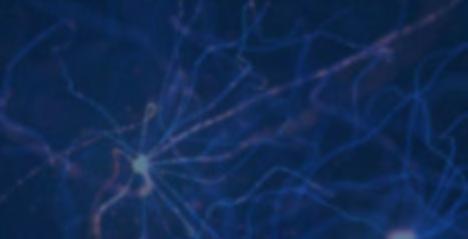
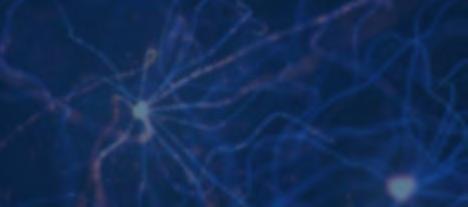

SEPTEMBER 2019
Please see the link below for more details Banting Postdoctoral Fellowships
ROYAL NORTH SHORE HOSPITAL
Graduate Certificate, Graduate Diploma and Masters
Endorsed by the International Society for the Study of Pain (IASP), this leading degree program provides advanced evidence-based and clinically relevant education in pain management for graduates in medicine, dentistry, nursing, physiotherapy, psychology and other allied health disciplines.
The program has been developed and is taught by The Faculty of Medicine and Health’s Pain Management Research Institute (PMRI), based at Royal North Shore Hospital and the The University of Sydney’s Kolling Institute.

The program is conducted entirely online and commences in March or August each year, with enrolments closing either late January or late June.
For dates & further information visit: sydney.edu.au/medicine/pmri/education

T: +61 2 9463 1516
E: paineducation@sydney.edu.au
Contemporary Rehabilitation Knowledge Translation, Collaboration and Community Engagement
Rehabilitation Medicine Society of Australia and New Zealand 4th ASM Sun 20 - Wed 23 October 2019 • Adelaide Convention Centre, SA
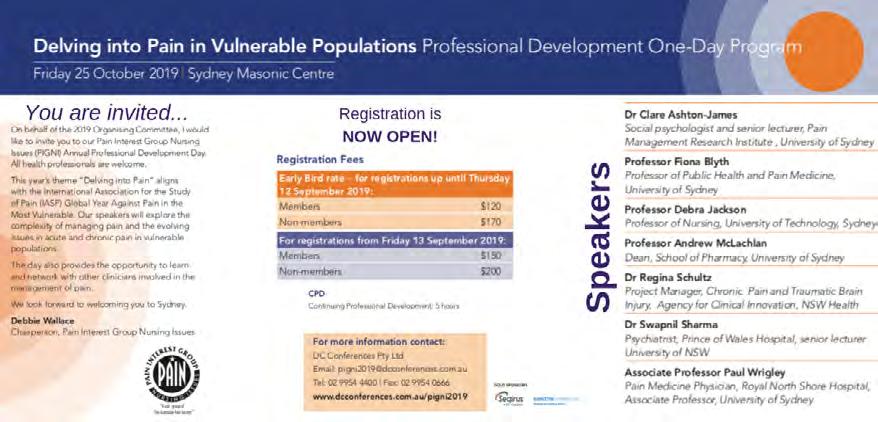


IMPORTANT DATES
ALL ABSTRACT SUBMISSIONS OPEN 10 DECEMBER 2018
CONCURRENT WORKSHOPS CLOSE 8 APRIL 2019
FREE PAPER AND POSTERS CLOSE 20 MAY 2019
ONLINE REGISTRATIONS OPEN MAY 2019
CONTACT
For further information or to complete an Expression of Interest visit: www.dcconferences.com.au/rmsanz2019
DC Conferences Pty Ltd P: +61 2 9954 4400 E: rmsanz2019@dcconferences.com.au
APIC2 The 2nd Asia Pacific Conference on Integrated Care will bring together researchers, clinicians, policy makers, industry, NGOs and consumer representatives from Australia and across the Asia-Pacific region. Led by colleagues at IFIC Australia, the Scientific Committee. Call for papers is now open until Friday, 28 June.
THEMES
Achieving Value for People and Populations

Implementing Integrated Care
Empowering and Engaging People and Communities
Integrated Care Innovations, Models and Systems
Email events@integratedcarefoundation.org
Evaluation, Monitoring and Quality Improvement
Improving People’s Health and Wellbeing through Integrated Care
Expressions of interest online at www.dcconferences.com.au/aps2020
For sponsorship and exhibition opportunities or more information please contact the APS Conference Secretariat
DC Conferences Pty Ltd
P: 61 2 9954 4400
E: aps2020@dcconferences.com.au

Submission Deadlines
Topical Sessions 1 October 2019
Free Papers & Posters 31 October 2019
Rising Star Award 31 October 2019
Early Bird Deadline 19 February 2020
Neuromodulation Society of Australia & New Zealand
14th Annual Scientific Meeting (NSANZ 2020)

Neuromodulation,Value Based Care
7-9 AUGUST 2020
Sofitel Brisbane Central, Queensland

Cadaver Workshop
7 AUGUST 2020
QUT Medical Engineering Research Faculty, Brisbane
• Chronic Pain: Is Australian healthcare really helping people who have chronic pain? Radio National discussion on 23JUN19 https://radio.abc. net.au/programitem/pgE7Pk0jlV
• New videos from NSW Health: Working with Aboriginal People: https://www.youtube.com/ watch?v=AV4Muq87ekQ&feature=em-uploademail
• Medicinal cannabis for chemotherapy-induced nausea and vomiting (CINV): prescribing with limited evidence – Published 12 November 2018: https://www.mja.com.au/ journal/2019/210/1/medicinal-cannabis-chemotherapy-induced-nausea-and-vomiting-prescribing-limited
• The Third Australian Atlas of Healthcare Variation: https://www. safetyandquality.gov.au/atlas
• Palliative Care Australia (PCA) and Australian Indigenous : HealthInfoNet (HealthInfoNet) has launched a new Palliative Care and End-of-Life Resource Portal for the workforce who support Aboriginal and Torres Strait Islander peoples at Parliament House in Canberra. The palliative care and end-of-life portal is designed to assist health professionals who provide care for Aboriginal and Torres Strait Islander people, their families and communities: https://healthinfonet. ecu.edu.au/learn/health-system/ palliative-care/
• Painaustralia eNewsletter latest issue, available online at: http:// www.painaustralia.org.au/media/ enews
• ePPOC: electronic Persistent Pain Outcomes Collaboration: For more information about ePPOC, refer to the website: http://ahsri.uow.edu.au/ eppoc/index.html
• PainHEALTH website: http://painhealth.csse.uwa.edu.au/
• ANZCA/FPM Free Opioid Calculator
App: Smart phone app that converts opiates to milligrams of morphine, available for both iPhone and Android: http://www.opioidcalculator.com.au
• Stanford University: CHOIR Collaborative Health Outcomes Information Registry: https://choir. stanford.edu/
• 2019 Global Year Against Pain in the Most Vulnerable: Launched 31JAN19. See information and resources on our website: http://www.apsoc.org.au/ global-year-against-pain
• Opioid Podcasts for GPs: 20 week series from the Hunter Postgraduate Medical Institute: http://www.gptraining.com.au/recent-podcasts
• Airing Pain: Pain resources via an online radio show produced by Pain Concern, a UK registered Charity: http://painconcern.org.uk/airing- pain/
• Digital Health Guide: Developed by Primary Health Network Tasmania: https://digitalhealthguide.com.au/ Account/LogOn?ReturnUrl=% 2fSpecialtyFormulary%2f2
At login; Username: connectingcare, Password: health
• 2017 Australia’s Health Tracker by Socio-economic status: Released 28NOV17: https://www.vu.edu.au/australian-health-policy-collaboration/ publications#goto----------------australias-health-tracker-by-socioeconomicstatus-----------=1
• Indigenous Resources: New webpage on the APS website aggregating Indigenous resources: https:// www.apsoc.org.au/IndigenousResources
• IASP Statement on Opioids: Approved February 2018: https:// www.iasp-pain.org/Advocacy/ OpioidPositionStatement
This reference can also be found on the APS Position Papers webpage.
• NSW Cannabis Medicines Advisory Service (CMAS): Launched 29JAN18 Fact Sheet on our website: https://www.apsoc.org.au/PDF/ Fact_Sheets/20180129_NSWCannabisMedicinesAdvisoryServiceCMAS_Fact_Sheet_FINAL.PDF
Service available: 9am-5pm MondayFriday Hotline: (02) 4923 6200 or email: HNELHD-CMAS@hnehealth. nsw.gov.au
• Chronic Pain edition issued 01JUN15: http://www.nps.org.au/publications/ health-professional/nps-news/2015/ chronic-pain
• Choosing Wisely Australia – News & media: http://www.choosingwisely. org.au/news-and-media
• Over the counter codeine – changes to supply: https://www.nps.org.au/ medical-info/clinical-topics/over-thecounter-codeine-changes-to-supply
• Medicines with codeine – what you need to know: https://www.nps. org.au/medical-info/consumer-info/ medicines-with-codeine-what-youneed-to-know
TGA
• Codeine information hub: https:// www.tga.gov.au/codeine-info-hub
• Guidance for the use of medicinal cannabis in the treatment of chronic non-cancer pain in Australia, v1-DEC17: https://www.tga.gov. au/publication/guidance-use-medicinal-cannabis-treatment-chronic-non-cancer-pain-australia
• Our Mob- Resources for Aboriginal People: https://www.aci.health.nsw. gov.au/chronic-pain/our-mob
• Brainman and Pain Tool Kit translations, SEP15: http://www.aci. health.nsw.gov.au/chronic-pain/ translated-resources
• Pain Management Resources: http://www.aci.health.nsw.gov.au/ resources/pain-management
• Quicksteps to Manage Chronic Pain in Primary Care: http://www.aci.health. nsw.gov.au/chronic-pain/health-professionals/quick-steps-to-managechronic-pain-in-primary-care
• Built into Quicksteps- “How to de-prescribe and wean opioids in general practice”: http://www.aci. health.nsw.gov.au/chronic-pain/ health-professionals/quicksteps-to-manage-chronic-painin-primary-care/how_to_de-prescribe_and_wean_opioids_in_general_practice
• A list of helpful apps for consumers and clinicians now available at: http://www.aci.health.nsw.gov.au/ chronic-pain/health-professionals/ management-of-chronic-pain
• Chronic Pain in the ED: https://www. aci.health.nsw.gov.au/networks/ eci/clinical/clinical-resources/ clinical-tools/pain-management/ chronic-pain-in-the-ed
• APS Plenary Recordings
As an exclusive benefit to APS members, the following Plenary videos are now available for free access:
- 2018 conference in Sydney
- 2017 conference in Adelaide
- 2016 conference in Perth
• Better Pain Management online learning modules
APS members receive a 20% discount
• BPR SIG Expert Database
Survey and Results
• Refer to our website for a full listing of media releases: http://www.apsoc.org. au/Media
PHD SCHOLARSHIP SPONSOR
Seqirus #1 — APS — APRA Sherelle Casey “Cannabinoids for neuropathic pain”
Cops for Kids #2 — APS — APRA Dr Tasha Stanton
“Reframe the pain: Dividing attention and altering memory to reduce needle pain and distress in children”
Cops for Kids #3 — APS — APRA Dr Nicole Andrews “An evaluation of the usability of a paediatric version of the Pain ROADMAP app”.
PHD
CSL
“Conditional comfort: A grounded theory study in nursing approaches to acknowledging and responding to pain in nursing home residents with dementia” Mundipharma
“Pain Management Programmes in Spinal Cord Injury: Cognitive Behavioural Pain Management Programmes in the Management of Sub-acute and Chronic Spinal Cord Injury Pain”
APS #2-APRA Debbie Tsui 2008
Mundipharma #2-APS-APRA Zoe Brett 2011
APS #3-APRA Susan Slatyer 2013
APS #4-APRA Amelia Edington 2013
Janssen Cilag #1-APS-APRA Mary Roberts Due
Mundipharma #3-APS-APRA
Audrey Wang 2017
Janssen Cilag #2-APS-APRA Sarah Kissiwaa 2017
APS #5-APRA James Kang 2019
Cops for Kids #1 — APS — APRA
Dr Adrienne Harvey 2019
“Preclinical studies in painful diabetic neuropathy”
“Individual differences in vulnerability to the development of chronic pain following injury”
“Caring for patients experiencing episodes of severe pain in an acute care hospital: Nurses’ perspective”
“Defining inhibitor binding sites unique to the glycine transporter, GLYT2: A potential target for the treatment of chronic pain”
“An investigation of the role of sleep in chronic pain”
“The cortical integration of tactile sensation in complex regional pain syndrome”
“Pain induced synaptic plasticity in the amygdala”
“The effect of nerve injury on behavioural selection and its relationship to prefrontal function”
“A pilot study of gabapentin for managing pain in children with dystonic cerebral palsy”
Where: Austin Pain Service, VIC
Job Reference: 29713
Employment Status: Permanent Part Time
Hours per week: 22.8 hours per week / 3 days a week
Contact: Francis Lagan, Team Leader (T: 03 9496 4609; E: francis.lagan@ austin.org.au)
Applications Close: 08AUG19
Austin Pain Clinic, Melbourne, has an exciting opportunity for a Grade 4 Psychologist to join our Multidisciplinary Pain Service in a

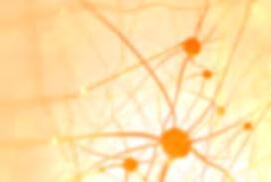
clinical and leadership role. The Pain Service is a small but dynamic team with a proud tradition of delivering high quality care. The position is a permanent, three day per week role. For further details: https:// austinhealth.mercury. com.au/ViewPosition.
aspx?id=KDCGf6jAUEY=&jbc=ere
Closing date for applications: 8 August 2019.
Please direct enquiries to Francis Lagan on 03 9496 4609 or francis. lagan@austin.org.au
Where: ACT Pain Centre, ACT
Employment Status: Permanent Part Time/Full Time/ Contract
Hours per week: Negotiable
Contact: Kalpana Palaniyappa (T: 02 6195 0180; E: kpactpaincentre@gmail. com)
Applications Close: 15SEP19
ACT Pain Centre is looking for a full time/ part time Clinical Psychologist/ Clinical Psychologist Registrar to work as part of the multi-disciplinary team. Both permanent and contract positions available.

• Terms of remuneration is negotiable and we are happy to negotiate salaried/contractor based model.
• Previous experience in chronic pain is desirable but not essential. If you do not have experience working with chronic pain patients, we are happy to provide you with training as required (this will be discussed at your interview). Courses and training required to up skill your knowledge will be identified and approved by the clinic.
For Clinical Psychologist Registrar candidates, supervision will be arranged as required and further clinical skill development will be supported by funding for conferences and courses.
Please direct enquiries to –kpactpaincentre@gmail.com, Phone: (02) 6195 0180
Ms Gina Kezelman Physiotherapy
Ms Ruth Parker Pharmacy
12-14 Aug 2019
Dietitians Association of Australia, 36th National Conference
More than meets the eye
Gold Coast Conference and Exhibition Centre, Gold Coast, QLD https://daa2019.com.au
21-23 Aug 2019
2019 Australian & New Zealand Spinal Cord Society (ANZSCoS) Annual Scientific Meeting
SCI - Working Together Now & Tomorrow
Pullman Melbourne Albert Park, Melbourne, VIC https://www.dcconferences.com.au/anzscos2019/
4-7 Sep 2019
European Pain Federation EFIC 11th Congress
Bringing the future to the present Feria Valencia, Valencia, Spain https://efic-congress.org
10-13 Sep 2019
Palliative Care Australia and Hospice New Zealand
2019 Oceanic Palliative Care Conference
Perth Convention & Exhibition Centre, Perth, WA https://oceanicpallcare.com
20 Sep 2019
Pain Management Research Institute - The University of Sydney
Clinical Skills Workshop - Dealing with emotionally challenging patient encounters Kolling Building, Royal North Shore Hospital, St Leonards, Sydney, NSW https://sydney.edu.au/content/dam/corporate/documents/faculty-of-medicine-and-health/shortcourses/clinical-skills-workshop-emotion-handling.pdf
20-24 Sep 2019
Australian Society of Anaesthetists
National Scientific Congress 2019
International Convention Centre, Sydney, NSW
http://asa2019.com.au
3 Oct 2019
UQ RECOVER Injury Research Centre
Whiplash 2019: Expanding Horizons
University of Queensland, ViewPoint, Building 33, Brisbane, QLD
https://cre-rfrti.centre.uq.edu.au/event/367/whiplash-2019-expanding-horizons
17-19 Oct 2019
Australian Physiotherapy Association
Transform 2019
Adelaide Convention Centre, Adelaide, SA
https://transform.physio
17-19 Oct 2019
Academy of Child & Adolescent Health
ACAH2019 Annual Conference
Hotel Grand Chancellor, Adelaide, SA
admin@acah.org.au
20-23 Oct 2019
Rehabilitation Medicine Society of Australia and New Zealand (RMSANZ) 4th Annual Scientific Meeting
Contemporary Rehabilitation: Knowledge Translation, Collaboration and Community Engagement
Adelaide Convention Centre, Adelaide, SA
https://www.dcconferences.com.au/rmsanz2019/
24-26 Oct 2019
RACGP - GP19
Your patients. Your community. Your solutions. Adelaide Convention Centre, Adelaide, SA
https://www.gp19.com.au
24-26 Oct 2019
Australian College of Rural and Remote Medicine (ACRRM) and Rural Doctors Association of Australia (RDAA)
Rural Medicine Australia - RMA19 - Riding the wave of change
The Star, Gold Coast, QLD https://rma.acrrm.org.au
25 Oct 2019
Pain Interest Group Nursing Issues (PIGNI) Professional Development Day Delving into Pain
SMC Conference & Function Centre, Sydney, NSW
https://dcconferences.eventsair.com/pigni2019/
11-13 Nov 2019
International Foundation for Integrated Care - IFIC Australia
APIC2 - 2nd Asia Pacific Conference on Integrated Care
Melbourne Convention and Exhibition Centre, Melbourne, VIC
https://integratedcarefoundation.org/events/apic2-2nd-asia-pacific-conference-on-integrated-care
22-24 Nov 2019
Australia New Zealand Headache Society
ANZHS Scientific Headache Meeting
Pullman on Albert Park, Melbourne, VIC http://anzhs.org/index.php/events/
29 Nov 2019
Pain Management Research Institute - University of Sydney
Descending the analgesic ladder: A landmark forum on opioid de-prescribing for chronic pain
Taronga Centre, Taronga Zoo, Sydney, NSW
https://sydney.edu.au/content/dam/corporate/documents/faculty-of-medicine-and-health/ research/centres-institutes-groups/pmri/Opioid-Forum-Flyer-2019.pdf
18-21 Mar 2020
New Zealand Pain Society Annual Scientific Meeting 2020
Making the Connection - Cortex, Culture and Community
Copthorne Hotel, Bay of Islands, New Zealand
https://www.nzccp.co.nz/events/conferences/new-zealand-pain-society-2020-conference/
5-8 Apr 2020
Australian Pain Society 40th Annual Scientific Meeting
In the IASP Global Year for the Prevention of Pain
Hotel Grand Chancellor, Hobart, TAS
https://www.dcconferences.com.au/aps2020/
7-9 Aug 2020
Neuromodulation Society of Australia & New Zealand (NSANZ) 14th Annual Scientific Meeting
Neuromodulation, Value Based Care
Sofitel Brisbane Central, Brisbane, QLD
https://dcconferences.eventsair.com/nsanz2020/
All people will have optimal access to pain prevention and management throughout their life.
MISSION:
The Australian Pain Society is a multidisciplinary organisation aiming to minimise pain and related suffering through advocacy and leadership in clinical practice, education and research.
AIMS:
• To promote the provision of healthcare services for pain management
• To promote equity of access to pain management services
• To actively engage with key stakeholders and contribute to their activities
• To provide a contemporary forum to discuss issues relating to pain research and treatment

• To foster and support pain-related evidence-based research

• To share and promote the expertise of all disciplines involved in the treatment of pain
• To promote and facilitate evidence-based pain related education for health professionals and the community
• To promote the development and use of standards and outcome measures in everyday clinical practice
PRESIDENT:
Dr Anne Burke
Central Adelaide Local Health
Network, Royal Adelaide Hospital
Adelaide SA 5000
Tel: 08 8222 5403 | Fax: 08 8222 5904
PRESIDENT—ELECT:
Ms Trudy Maunsell
Acute Pain Service
Princess Alexandra Hospital
Woolloongabba QLD 4102
Tel: 07 3176 5547 | Fax: 07 3176 5102
SECRETARY:
Dr Will Howard

Director, Pain Service
Austin Health Studley Road
Heidelberg VIC 3084
Tel: 03 9496 3800 | Fax: 03 9459 6421
TREASURER:
Mr Tim Austin
Camperdown Physiotherapy
Inner West Pain Centre
100 Carillon Avenue
Newtown NSW 2042
Tel: 02 9517 1787 | Fax: 02 9516 2491
ACT DIRECTOR:
Dr Andrew Watson

Calvary Hospital
Canberra ACT 2617
Tel: 02 6201 6352
NSW DIRECTOR: Dr Tim Ho




Royal Prince Alfred Hospital
Inner West Pain Centre
100 Carillon Avenue
Newtown NSW 2042
Tel: 02 9517 1764 | Fax: 02 9517 1832
NT DIRECTOR:
Ms Diann Black
Royal Darwin Hospital PO Box 41326
Casuarina NT 0811
Tel: 08 8931 1029
QLD DIRECTOR:
Mrs Joyce McSwan
Gold Coast Primary Health Network
Persistent Pain Program, QLD
Tel: 0412 327 795 | Fax: 07 3539 9801
SA DIRECTOR:
Dr Michelle Harris

Royal Adelaide Hospital and Lyell McEwin Hospital
Adelaide SA
Email: michelle.harris2@sa.gov.au
TAS DIRECTOR:
Dinah Spratt
Physiotas Physiotherapy
3/11 Poyston Drive
Shearwater TAS 7307
Tel: 03 6428 7500 | Fax: 03 6424 7811
VIC DIRECTOR:
Dr Laura Prendergast





Pain Service, Austin Health
Chronic Pain Clinic, Goulburn Valley Health VIC
Tel: 03 9496 3134 or 03 5832 3020
WA DIRECTOR:
Mr Shadreck Tozana
Functional Revival and Baptistcare
Bethal, 2 Bethal Way Albany WA 6330
Tel: 0437 541 165 | Fax: 08 9841 8480
IMMEDIATE PAST PRESIDENT:
Ms Fiona Hodson
Hunter Integrated Pain Service
John Hunter Hospital Campus
New Lambton NSW 2305
Tel: 02 4922 3435 | Fax: 02 4922 3438
SPC CHAIR:
A/Prof Kevin Keay





Department of Anatomy
University of Sydney
Sydney NSW 2006
Tel: 02 9351 4132 | Fax: 02 9351 2817
IASP LIAISON:
Professor Michael Nicholas
Pain Management Research Institute

Royal North Shore Hospital
St Leonards NSW 2065
Tel: 02 9926 7894 | Fax: 02 9662 6279
Website: www.iasp–pain.org
COMMUNICATIONS/WEBSITE/ SOCIAL & OTHER MEDIA
COORDINATOR:
Dr Will Howard
Director, Pain Service
Austin Health
Studley Road, Heidelberg VIC 3084
Tel: 03 9496 3800 | Fax: 03 9459 6421
NEWSLETTER EDITOR:
Dr Stephanie Davies


WA Specialist Pain Services
Cottesloe WA 6011
Tel: 0412 933 419 | Fax: 08 9286 8023
NEWSLETTER ASSISTANT
EDITOR:
Dr Lincoln Tracy
School of Public Health and Preventive Medicine
Monash University
Melbourne VIC 3004
Tel: 03 9903 0288
PHD SCHOLARSHIP CHAIR:
A/Prof Michael Farrell
School of Biomedical Sciences
Monash University
Clayton VIC 3800
Tel: 03 9905 6094
SECRETARIAT:
DC Conferences Pty Ltd
PO Box 637
North Sydney, NSW 2059
Tel: 02 9016 4343 | Fax: 02 9954 0666
Email: aps@apsoc.org.au
Website: www.apsoc.org.au